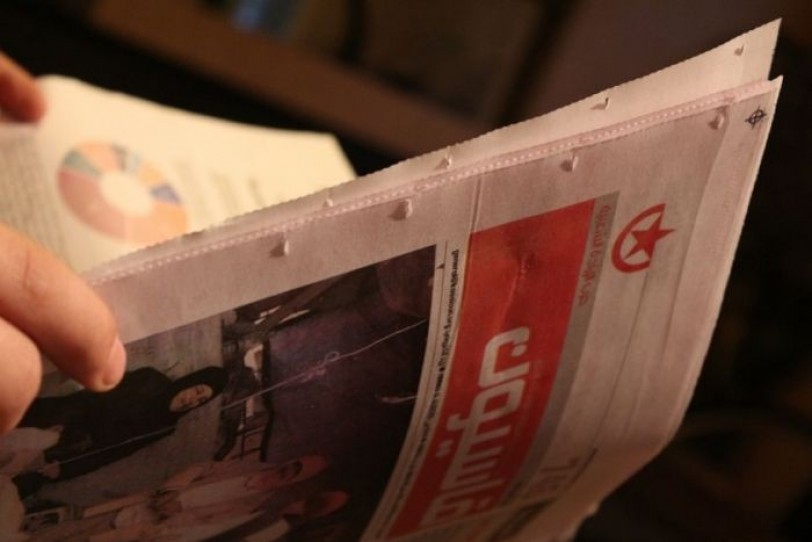- Editorials
- Posted
The Political Solution and National Sovereignty
Violation of the Syrian national sovereignty has been, and is still, one of the main risks caused by the country's comprehensive national crisis. The Syrian ground has turned into a battle field, and a diverse- front/ objective conflict. The role and will of the Syrian people have been overshadowed, making this sovereignty in the wind, threatening the territorial integrity of the Syrian State.
Under such situations, it's needless to say that the restoration of the Syrian National Sovereignty should be one of the main tasks on the agenda , being one of the prerequisites for preserving the country's existence, unity, and future advancement. It should be underlined here that "Sovereignty" is not meant to be concise to the sovereignty of the Syrian State. Though the latter is quite significant and necessary, yet it remains insufficient and incomplete, unless it combines with the Sovereignty of the Syrian People, meaning their indisputable right to self-determination with regard to the future of their country. The sovereignty of the Syrian People is considered as the basis for all other remaining sovereignty forms, that have been deeply violated since the onset of the crisis (far before 2011), until its climax, hitting the country, entirely.
Under today's circumstances, it's only the political solution that forms the entrance to restoring the Syrian National Sovereignty, with its full meaning: the Sovereignty of the Syrian State and the Sovereignty of the Syrian People. The Political Solution is an indispensable condition for truly accomplishing any mission. The needed solution, as stipulated in the different international resolutions and statements, since Geneva Communiqué (June 30,2012) to UNSCR 2254 (2015), means in addition to combating terrorism, putting an end to the humanitarian catastrophe, and launching the political process leading to the national, democratic, deep, radical, and comprehensive change, as interrelated and integrated tasks, restoring the national sovereignty, undiminished, with its deepest implications.
Now, we have developments that widely open the door for resuming the negotiations and thus laying the materialistic foreground for restoring the national sovereignty. These include: Moscow Statement, the Tripartite Agreement (Russia, Iran and Turkey), the rolling up of, and speed in positions, the direct and honest follow-up by the international sponsor- Russia of the developments, whether on ground with regard to the settlement with Turkey after the constant changes in its positions, the agreements of the three sides to ceasefire, the safe exit of tens of thousands of Syrian citizens out of the besieged neighbourhoods in Aleppo, having thousands of amedmen handing their weapons over, the seperation process that took place within the armed groups between the "moderate" and the "terrorist", or with regard to continuing with the efforts to revive the negotiation track, including certain activities to hold a meeting in Astana, as a step along Geneva road, marginalizing the roles of the international, regional and local hinderenace forces, setting the possibilities for excluding them out of the entire political process in case they continued with their obstacles, and having a gaurantee by the three sides to fulfil the agreement.
Having the Syrian People restoring their sovereignty over their territories and homeland is not only their natural right, rather this would also nourish and integrate with that new momentum towards the political solution, gained by the progress of Syria's actual allies and the rise of their roles internationally. Moreover, this would help speeding up the alleviation of the deep impacts of the crisis, and healing them up within reasonable time-frames, preventing the "luxury" of more time-waste.
Kassioun Editorial, Issue No 790, December 25, 2016


